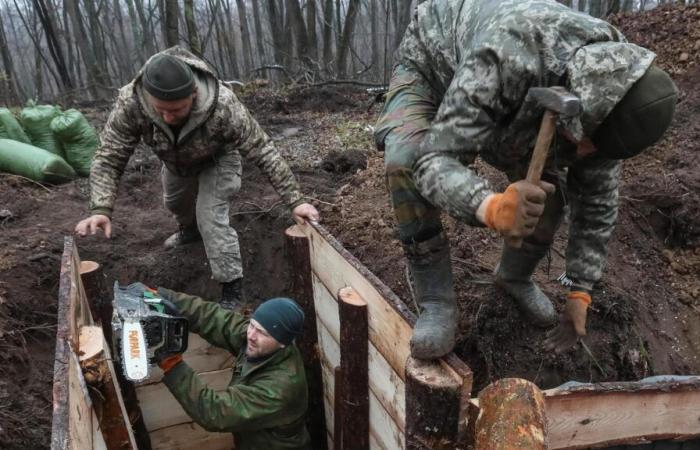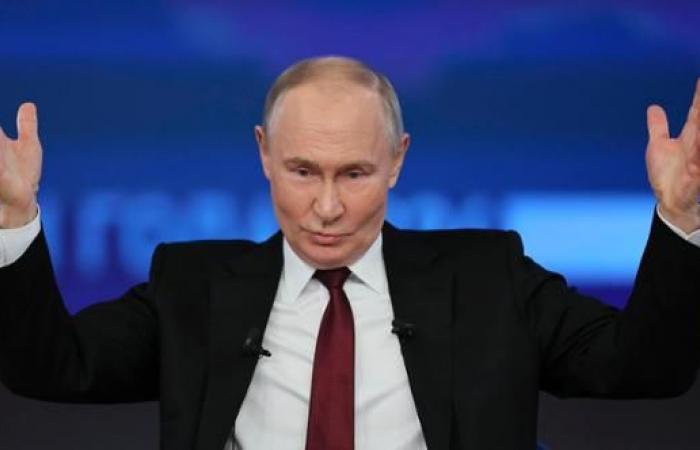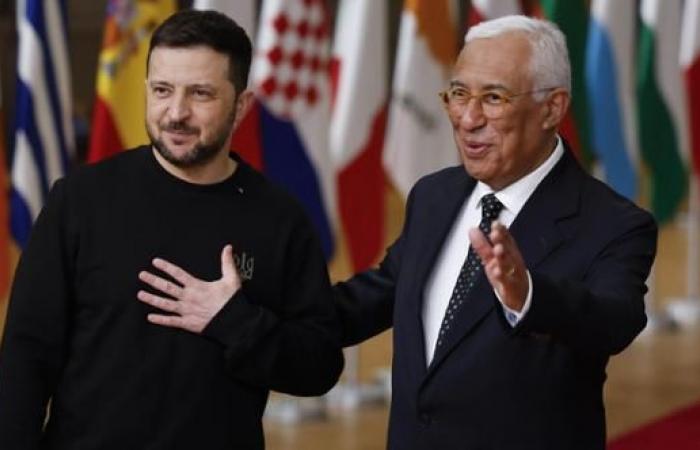Yesterday Zelensky had opened a door to the end of the war, yesterday Putin was quick to close it. At “that” door: cessation of hostilities and negotiations at a standstill. Which is the background to the expectations of the international community and, perhaps, to Donald Trump’s inscrutable “peace plan”. To the disarming admission of the Ukrainian President that he is unable to recover the lost territory by military means, his Russian counterpart retorted that Russia is close to achieving the objectives of the “special military operation” in Ukraine. Translated: to Volodymyr Zelensky who, with death in his heart, said “we can’t win, so let’s negotiate”, Vladimir Putin exuding optimism replied “first we win, then we negotiate”.
If not a mirage, as Nathalie Tocci wrote yesterday, the end of the Ukrainian war is still far away. With all due respect to the president-elect of the United States who promised it within twenty-four hours. Maybe but it will be a very long twenty-four hours. In his speech at the end of the year, rejecting a truce for “long-term peace”, the Russian president said two “no”s: one to Zelensky, the other to Trump. He treated them very differently.
the comment
Putin, a leader at war against reality
at Anna Zafesova
December 20, 2024
He basically said “no” to any dialogue with Zelensky. He denied the legitimacy of the Ukrainian president due to his mandate expiring in May – the elections were postponed due to the war with the agreement of all the political forces in Kiev. Say he is ready to negotiate with anyone only after new elections, even Zelensky if reconfirmed, would mean postponing any negotiations until the Greek calendar. Certainly beyond the day after Donald Trump’s inauguration.
Which, however, Putin is ready to meet “at any time”. He didn’t even anticipate any preconditions as “I’m sure we’ll have something to talk about” (who doubts that?). His second “niet” was more subtle. Trump flaunts confidence in quickly inducing Russia and Ukraine to end hostilities. He said it during the election campaign, repeated it after coming out victorious at the polls, almost certainly imposed in the talks with Zelensky. Yesterday’s message from the Kremlin tells him two things: not so fast and on my terms. The latter being the achievement of the objectives of the special operation, i.e. military victory. Having said that, “politics is the art of compromise and negotiations are a compromise”, and the American president-elect himself has defined himself as an artist on the subject. Putin will test it. With him Donald Trump will find his match much more than with many other international leaders who try to curry favor with him (in French, for example) or at least to start with a conciliatory approach (in Chinese, for example).
THE BACKGROUND
Zelensky and the SOS to Europe: he asks Brussels for help but the EU remains divided
MARCO BRESOLIN, FEDERICO CAPURSO
December 20, 2024


“Niet” has always been the Russian conditioned reflex in international negotiations – the legendary and eternal (but now surpassed in durability by Sergei Lavrov) Andrei Gromyko was baptized “Mr. Niet”. This time it comes from the highest level in Moscow but it can also be a pre-negotiating position, accompanied by a litany of more or less threatening warnings to the West, including the memorandum on the new Russian nuclear doctrine. In practice, Putin, a black belt in jiu-jitsu, is also a good cash taker. Among many things (he spoke for over four hours) he said that “Russia has achieved its objectives” in Syria. If he reaches them in the same way in Ukraine Zelensky can sleep a little more peacefully.
Vladimir Putin’s speech puts a big question mark on the widespread belief that 2025 will see the end of the war in Ukraine. Supported by valid elements: Ukraine exhausted, Russia a little less – every “square kilometer” conquered pays in human lives, the tiredness is also felt in Moscow, the war economy weighs on the ruble and on the people; arrival of an American President who promises peace; Zelensky’s realism, albeit forced.
But we have to deal with the Russian innkeeper. The bill is steep. In order not only to make Kiev pay but also to European security, the alternative remains to deny the Russian president the military victory that he thinks is within reach. Donald Trump can especially do this if his peace plan contains “an offer that Putin cannot refuse”that is, the warning that in the event of rejection the United States and NATO will continue to support Kiev with massive military aid. Today Mar-a-Lago remains a Sphinx; we will have to wait until January 20th.
In the meantime, however, the Europeans, despite not being able to replace the Americans, can at least ensure that they are ready to do their part without hesitation and ruminations – see Olaf Scholz’s pre-election turns of phrase. No more and no less than what Volodymyr Zelensky has just asked of NATO and the EU.








